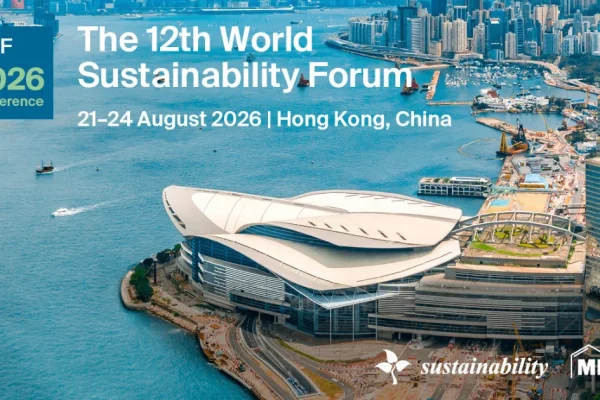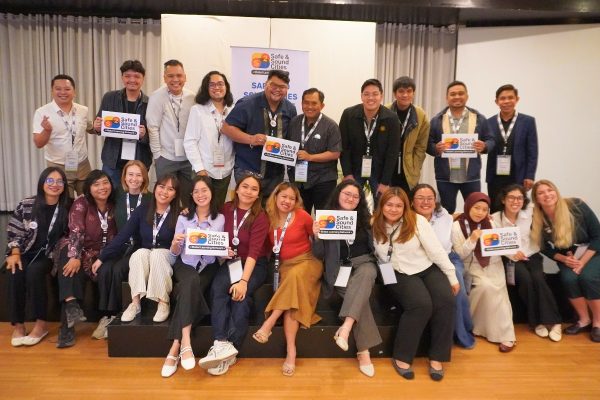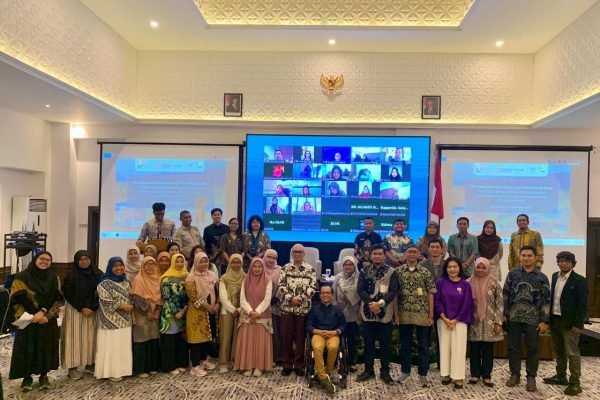Geri Amarnani of the Pinay Bike Commuter Community speaks about being a female cyclist in the Philippines during Chat 3 of the Philippine Mobility Series, June 27, 2025 at the AIM Conference Center, Makati City. (Photo from the Pinay Bike Commuter Facebook page)
“A commute shouldn’t be a fight for your life,” said Geri Amarnani of the Pinay Bike Commuter Community, the first guest speaker during the third chat (Chat 3) of the Philippine Mobility Series, which focused on gender, active transport, micromobility, and placemaking.
ICLEI Southeast Asia (SEA) was invited to participate in Chat 3 last June 27, 2025 at the AIM Conference Center in Makati City, joining representatives from national government agencies, local government offices, civil society organizations, the academe, and the private sector.
The Philippine Mobility Series 2025 is a series of chats conducted by AltMobility PH and the German Agency for International Cooperation’s (GIZ) Transformative Actions for Climate and Ecological Protection and Development (TRANSCEND) Project, co-presented by the Department of Transportation (DOTr) and in partnership with Grab, Makati Business Club, Inc., and the Move As One Coalition.
The chats aim to open discussion about the current transport situation in the Philippines, identify specific issues across various thematic areas, and culminate in a Philippine Mobility Summit in September 2025.

Participants of Chat 3 of the Philippine Mobility Series, representing national government agencies, local government offices, civil society organizations, the academe, and the private sector, last June 27, 2024 at the AIM Conference Center, Makati City. (Photo from the GIZ Philippines and the Pacific Island Countries Facebook page)
The discussions during Chat 3 underscored the participants’ shared vision of transportation development that prioritizes people instead of vehicles. They highlighted a need for modal diversification and a shift toward sustainable modes of transportation like active transport, as well as ensuring these transport modes are safe and accessible to vulnerable groups like women, children, senior citizens, persons with disabilities, and vulnerable road users.
Amarnani, as the first guest speaker, spoke about her experience as a female bike commuter in the Philippines. She highlighted the social and cultural stigma against biking in the Philippines as well as the dangers motorized vehicles pose to cyclists.
“Mobility is not just about moving people – it’s about honoring lives. It’s about making sure no one gets left behind, not because they’re slow or different, but because we chose to build a city that lifts everyone,” said Amarnani.
Misha Quimpo of Ayala Estates, the second guest speaker, showcased Ayala Land Inc.’s “car-free” Sundays. Every Sunday from 6:00 AM to 10:00 AM, Ayala Avenue is closed to motorists for residents and visitors of Makati City to run, bike, skate, and join activities like Zumba and yoga held on the street. Car-free Sundays in Makati were established in 2023, and since then other cities in the Philippines have also launched their own car-free Sundays.
Troy Caiga, Transportation Development Officer from DOTr, also discussed the DOTr’s ongoing development of the Active Transport Strategic Master Plan (ATSMP) as the foundational framework for the development of high-quality active transportation systems in the Philippines. The ATSMP is partnering with the cities and municipalities within the National Capital Region (NCR), Surigao City, Iloilo City, Puerto Princesa City, Zamboanga City, and the City of Mati in Davao Oriental as pilot areas for the framework and seeks to establish inclusive, people-centered areas and improve pedestrian and cycling infrastructure.
To end the Chat, Placemaking Pilipinas conducted a placemaking activity for the Makati City Central Business District. Placemaking is an approach to increase people’s capacity for agency over the systems they are a part of through establishing a social and emotional link to a place. Participants identified areas in Makati City they would like to develop to shape the public space to suit those who regularly use it. The proposed developments included improvements to the active transport experience, like new pedestrian lanes, accessible and safe bike parking, and improved sidewalks.
Written by Claudia Ragandap

A participant presenting her group’s output during the placemaking activity led by Placemaking Pilipinas. (Photo by Claudia Ragandap)

Another group output from the placemaking activity by Placemaking Pilipinas. (Photo by Claudia Ragandap)




